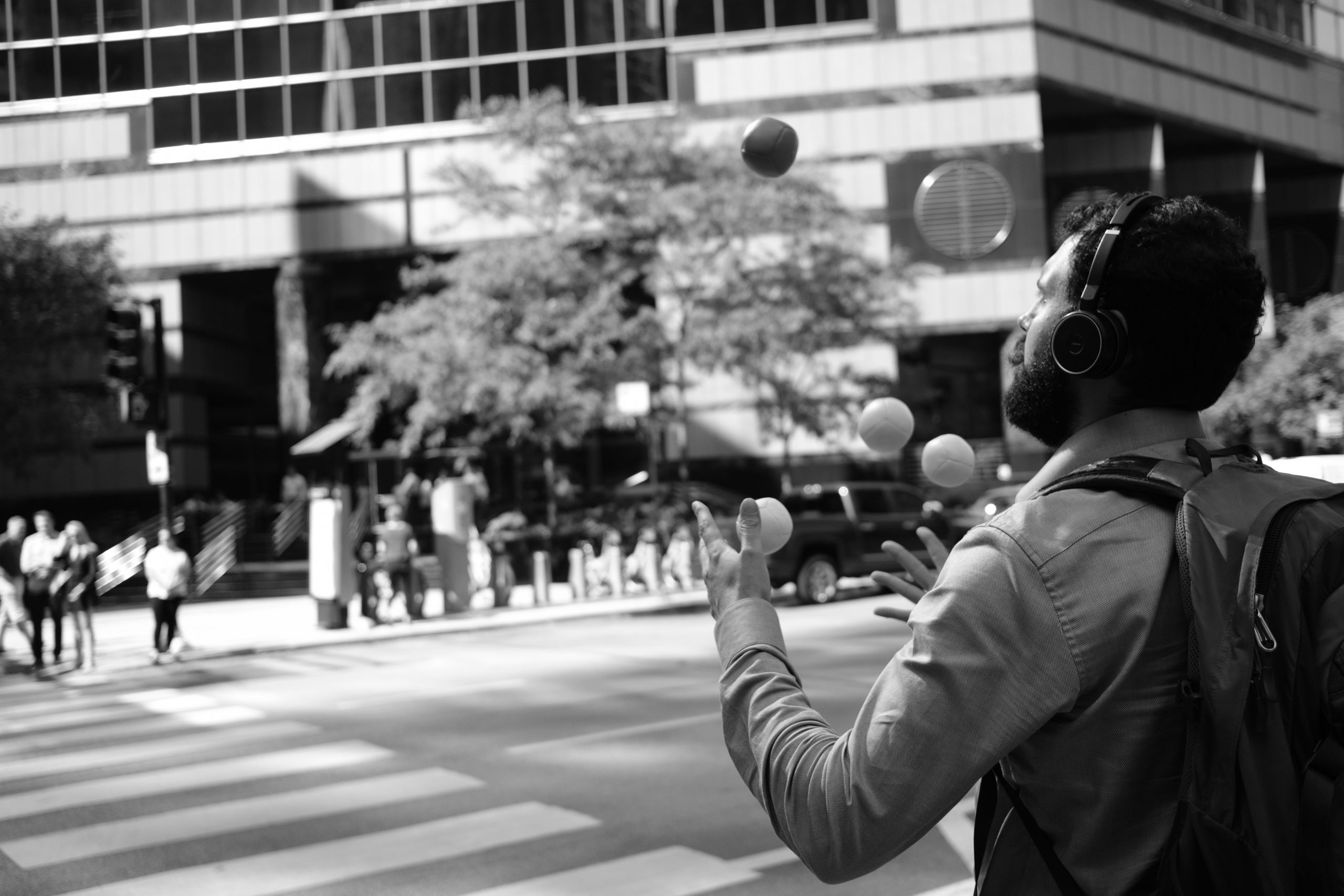Like many PR professionals, I consider myself a decent multitasker. I find plenty of ways to justify my surface-skimming ways, including the most obvious excuse, the nature of the agency business. And, yes, I’ve occasionally had a superiority complex about my juggling act. I used to work with someone who never tried to take on more than one thing at a time. He moved methodically from each task to the next in tunnel-vision mode. Nothing – no rings, pings, beeps, or people rushing to the doorway signaling frantically- seemed to distract him. To me, his work habits were anachronistic, and, on occasion, wildly frustrating.
A new study might just give multitaskers our comeuppance, however. Communications professors at Stanford University divided a group of undergraduates into “light” and “heavy” multitaskers and assessed them on essential skills, like memory and focus. Their conclusion? Those who multitask the most are by far the worst at it. The heavy multitaskers had particular trouble switching from one task to another…pretty significant, considering that’s the very definition of the term. Even more damning, their ability to filter was far inferior to that of the other group. In fact, the uber-multitaskers were in every way inferior to the light multitaskers.
Clearly, the study has implications for all of us who think we’re getting by with an attention-deprived approach to everything. And, it contradicts the New York magazine story I blogged about only last spring. The story defends our national distractability and outlines the benefits of overstimulation – creativity, efficiency – even something called neuroplasticity, which is the brain’s ability to adapt to more and more information over time.
Now, as with most studies like the Stanford one, are there plenty of unanswered questions. Where do cause and effect come in? Is the poor cognitive functioning caused by too much stimulation, or is there something in multitaskers’ brains that make them want to watch TV, listen to music, and write their thesis while texting friends? The research team implies that heavy users of media and information might have a voracious hunger for information for its own sake, not in order to process and use it. (Do I smell Multitaskers Anonymous, a 12-step program in only three easy steps?) At any rate, the Stanford researchers profess to be so astonished by the result of their study that they’re planning new ones designed to identify what multitaskers might be good at and probe more deeply into the reasons for their behavior.
But, does the study really surprise anyone? It’s pretty obvious that we reach a point of diminishing returns when we take on too much simultaneously. When I really think about it, my most effective technique isn’t continuous partial attention, but the task-by-task, out-of-my-way urgency that’s my default under extreme time pressure. It feels like juggling, but it’s really ruthless unitasking, like a machete that cuts a swath through thick jungle growth.
What I find most entertaining about the study, however, is the researchers themselves. They don’t mince words. For an academic, Professor Clifford Nass uses pretty casual language, and he’s not afraid of a sweeping statement. “This shocked the heck out of us,” he keeps saying. He tells The New York Times, “high multitaskers are suckers for irrelevancy” and sums it up by calling them “lousy at everything.”
Ouch. No cautious research-speak here. Could this guy be a unitasker with a grudge? More likely a savvy professor with a flair for PR.
